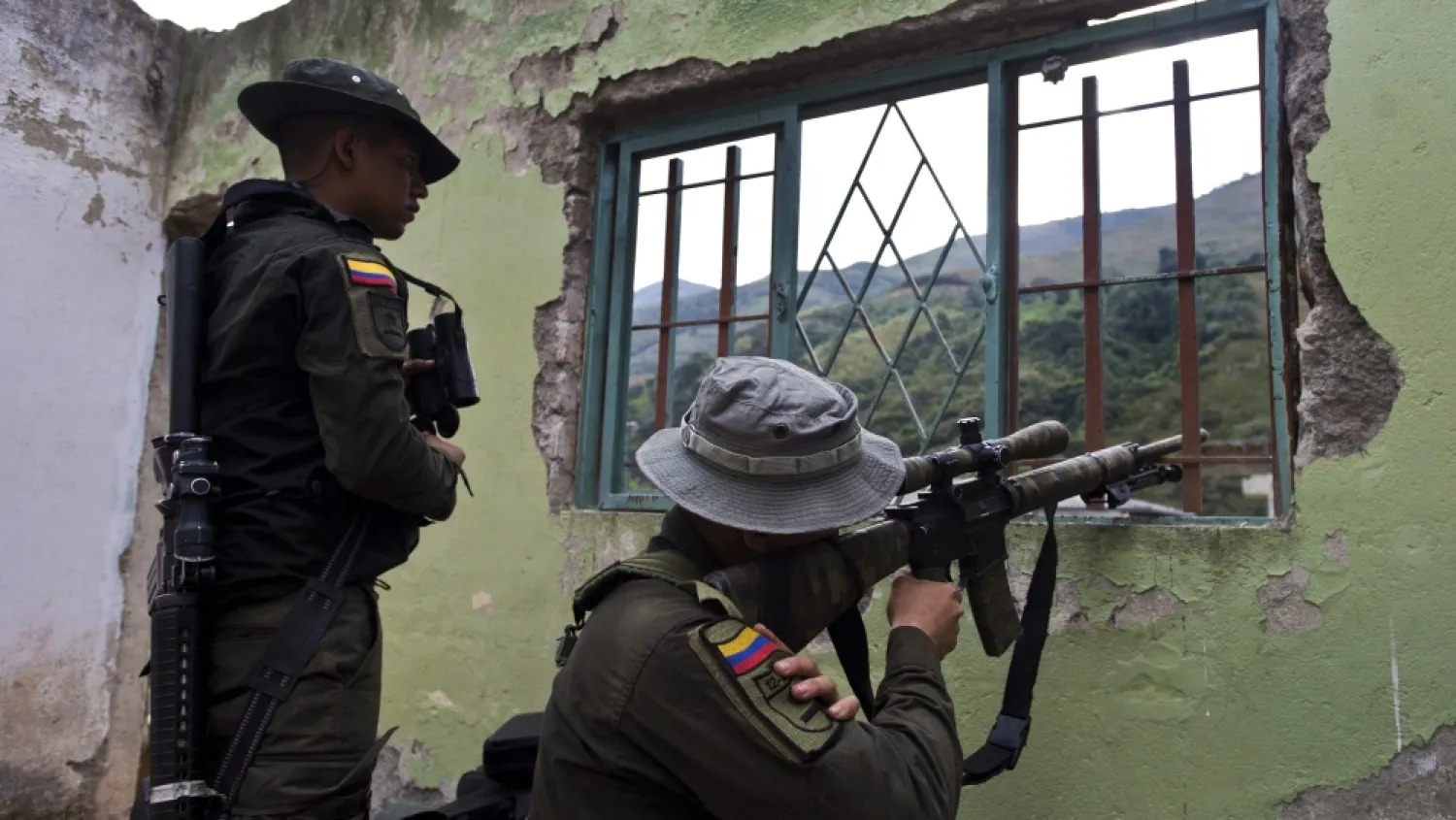Colombia is offering rebels who have rejected the nation’s historic peace deal and remain in arms a path forward as civilians if they agree to surrender their weapons and cooperate with any judicial proceedings against them.
The decree announced Wednesday is aimed at dissidents with the former Revolutionary Armed Forces of Colombia, as well as those who belong to three other groups – the Gulf Clan, the Pelusos and the Caparros.
In total the groups are estimated to have several thousand militants who continue to cause violence in conflict-ridden parts of the country.
“The state today is extending its hand,” said Miguel Ceballos, Colombia’s high commissioner for peace. “This is a moment in which saving lives, as all Colombians and all people on this planet know, should be the priority.”
The offer is similar to past government efforts aimed at convincing individual members of illegal armed groups to surrender rather than negotiate a collective peace deal, as was done with the Revolutionary Armed Forces in 2016, ending Latin America’s longest-running conflict.
The new decree does not include the National Liberation Army, whose leaders Tuesday proposed a bilateral 90-day ceasefire. Duque rejected that offer, instead calling on them to free all kidnapping victims and stop all criminal activity. Talks with the group fizzled in 2018 after a series of bombings against police.
“Our government will never cease to fulfill its constitutional obligation to confront criminality,” Duque wrote on Twitter. “The ELN is a terrorist group that has attacked with barbarity our country for decades.”
The new decree aimed at four groups heavily involved in the drug trade still requires rebels to go before the justice system, but offers immediate aid with food, housing, health care and education “to start a new life plan.”
Ceballos said penalties would be much higher for rebels like Seuxis Hernández, alias Jesús Santrich, and Luciano Marín, alias Iván Márquez, two guerrilla leaders who were key proponents of the peace accord but later opted to return to arms, accusing the state of betraying the deal.
“This is not a decree of forgiveness or amnesty,” he said.
Though not named, ELN rebels can still seek individual surrender under a 2003 law. The new measure was announced in April, but only became effective this week with a new decree outlining the specific steps rebels can take.
Violence still reigns in several parts of Colombia where coca crops have grown at record levels in recent years and the state has little presence. Over 100 social leaders have been killed thus far in 2020, according to Indepaz, a human rights monitoring organization. Prosecutors say illegal armed groups who see the activists as a threat to their territorial control are behind much of the bloodshed.
The presidential decree is likely aimed at low-ranking rebels who never signed on to the peace accord or have since fallen back into illegal activity, said Ariel Ávila, deputy director of the Peace and Reconciliation Foundation.
He said all of the groups in question have expanded in recent years, with the Revolutionary Armed Force of Colombia dissidents likely numbering around 2,500, many of whom are not likely to pursue the offer.
“For some who are feeling a lot of military pressure, perhaps,” he said. “For others, no.”









